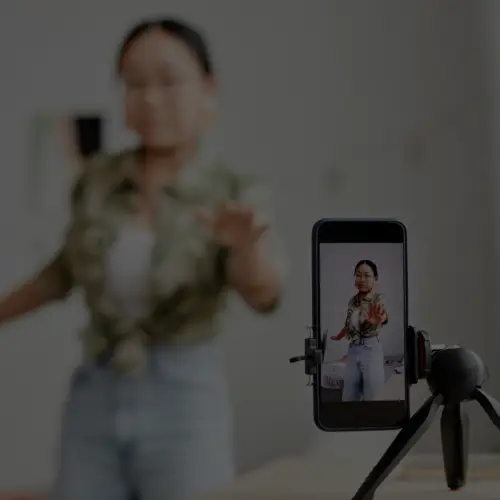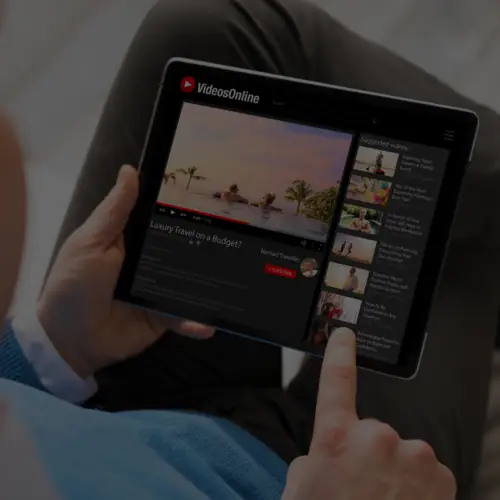19 Aug How to Write a Social Media Proposal
Back in 2007, I wrote a post that continues to be one of our most popular to date “How to Write a Social Media Proposal” . Since then, I’ve learned a lot. For one – I’ve learned that that post was written more for social media marketers working at a social media agency responding to a Request for Proposal. But a lot of folks on the client side are wondering how to write that Request for Proposal in the first place. So three years later, it’s time to update it. If you do work on my side of the table and want to review my old post, please download the PDF here.
To start with, I’m assuming you manage the social media efforts within your company. Because you wear multiple hats, you are also charged with finding the right agency to help you figure out your social media strategy, implement your social media efforts, and provide you with metrics and monitoring. You would also like an agency who “gets” your specific business objectives, quirks, and culture.
To help you find this agency, I’ve compiled a few crucial tips to help write a Request for Proposal that will help find the best agency for you.
Tip 1: Define your needs
A proposal should clearly address the specific needs you expect your agency to meet, and how you envision the relationship playing itself out. When defining your needs, think a minute about your internal resources, immediate project needs, and long term plan. Also consider the following:
- Are you looking for a specialist or a generalist? If you already have an Advertising or PR agency that works well for your traditional efforts, but isn’t up to speed on your social media efforts, you may want to search for a specialist in social media marketing. If you want a firm that can do a little bit of everything (i.e., launch social, do a press push on it and manage street teams for a launch event), you will need to write your proposal with this in mind, and provide the RFP to agencies that fit this build.
- What is your timeframe? Are you looking for a one-time initiative to support a specific product launch, an overall strategy that your internal team will carry out, or a long term partnership?
Tip 2: Establish a Scenario with Specific Objectives
One of the best ways to tell if an agency is going to be a fit is to see how they think about your business. Instead of asking for the standard case studies and related experience (which can all be manipulated to look favorable for the agency) – see if the agency has the chops to develop a social strategy that will meet your business objectives. To do this – try to establish a reasonable scenario with clear objectives. Be specific.
While it is unreasonable for an agency to give you a mapped out plan of action answering all of your company’s social needs – it is reasonable to ask what is the first thing they would advise you to do in the social space given your business objectives. Or you could ask their opinion on a specific social strategy that you’re considering that is a tough call. Again, don’t expect a full plan (you have to pay for that), but this will show you how they approach the space, and to see if they have done the necessary research on your company.
Tip 3: Ask about the future
If you want an agency who has potential as a long-term partner, ask questions that pertain to the future. It’s one thing to hire an agency that understands the space now, but you need to ensure that they are also staying abreast of the changes in the space and how these changes will affect your social media strategy over time. Don’t be afraid to ask large questions like “What do you see is the future of social media?” or “How do you see social media marketing evolving over the next year?” I realize these questions may seem a bit hokey, but they should elicit responses that are insightful into the agency’s approach to social media marketing.
Tip 4: Reveal a budget
It may seem like hiding your budget and asking the agency how much you should spend in the space is a better route to go. However, the budget allows the agency to better prioritize — from all of the social activities your company needs to do in the space — which ones are most important. Since agencies sell time and expertise primarily, the budget can range dramatically depending on how much internal resources your company has or doesn’t have.
For instance, some clients have invested in an internal social media team, and then hired us to perform their overall strategy and implementation of larger campaign tactics while they handle some of the day-to-day. With a budget in mind, and a good understanding of their internal resources, we are better equipped to provide recommendations for the internal team to carry out, and recommendations our team is capable of carrying out. A good agency will always have more ideas than you can afford (regardless of how big your brand is). If you don’t provide a budget, we can’t prioritize those ideas for you.
Other good reasons: Some agencies have project or fee minimums and you want to know that sooner rather than later. Also, ideas for $50,000 in spend are vastly different than ideas for $500,000 in spend. You want ideas coming back to you that are realistic.
If you’re concerned about an agency costing more than another, you can ask for hourly rates and/or ask them to price one very specific project or sub-project. You might want to do this in the finalist stage.
Tip 5: Be reasonable
Writing an RFP shouldn’t turn into a game of 100 questions. At this point in time, the best social media agencies have more work than they know what to do with in the social space, and are devoting more time to client work than responding to RFP’s. Here at Ignite Social Media, we are currently responding to only about 20% of the proposal requests that we receive, and selecting our responses based on how the company helps build our knowledge in the space, and who we can respond to given our resources. One household name brand we’re talking with told us, “We’re struggling to get any of the good agencies to even come see us.” That’s very different than what you’ll find in the traditional space.
Unfortunately, many marketers are developing their request for proposals based on the Social Media Group’s template. Conservatively, this template has 100+ questions that if taken verbatum only social media consultants with a questionable amount of time on their hands could respond to. As the industry is currently, to attract the best talent you will need to streamline your list to the items that are based on your company’s needs, and give a response timeframe that is based on the number and difficulty of your questions. Don’t get us wrong, it’s a good starting point, but you have to significantly pare it down or a lot of firms will pass on responding.
Tip 6: Ask for one good case study
Yes, we said earlier that asking for a bunch of case studies won’t necessarily get you where you want to go, but it should be part of the discussion. Make it clear that you want to know the specific business objectives the agency was asked to solve, the solution the agency chose and the specific metrics that came out of the campaign. Double check as you go that the resulting metrics tie back to those business objectives.
Tip 7: Check references
Half of your new agency relationship wil be about the work, but half will be about the relationship itself. Ask the references very specific questions, such as,
- How responsive is your account manager?
- How often do they hit deadlines, even the internal milestones? How often do they miss them?
- Are you satisfied with the creativiity of the ideas they bring you?
- How long have you been working with them?
- How many projects have they done for you?
- Is the relationship what you thought it would be when you hired them? Is it better? Is it worse?
No agency is perfect. (Heck, no client is perfect.) But getting insights on to the difference between what they promise and what they deliver is key.
These are just a few tips to help guide you in the creation of a social media proposal that will get you the most qualified social media agency. The biggest takeaway is to structure your proposal so that you set the agency up to talk more about your company than their agency. This forces the agency to show you how they think, and more importantly what opportunities they see for your company.
Have any other tips? Please share in the comments below.






